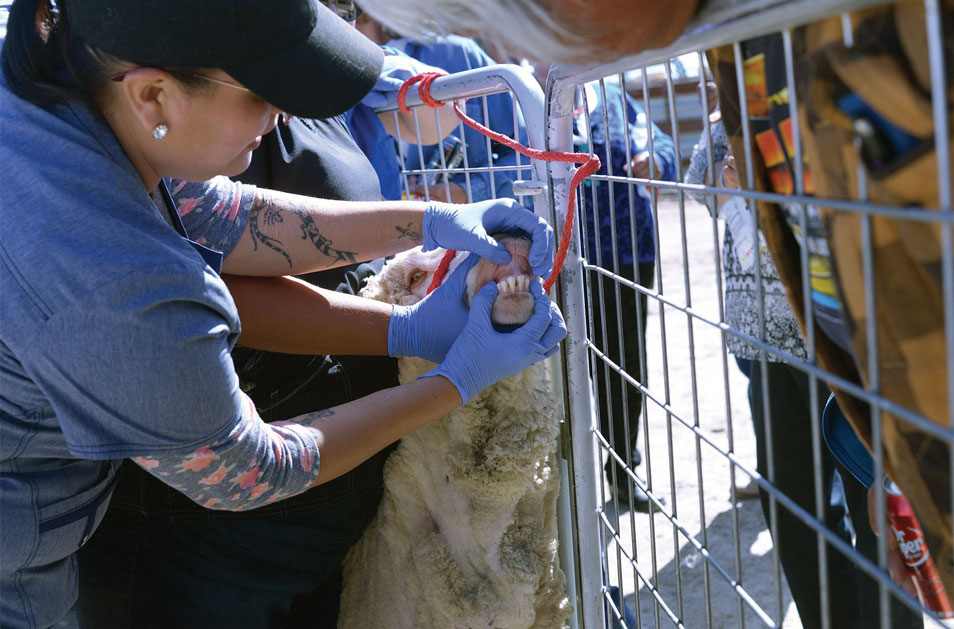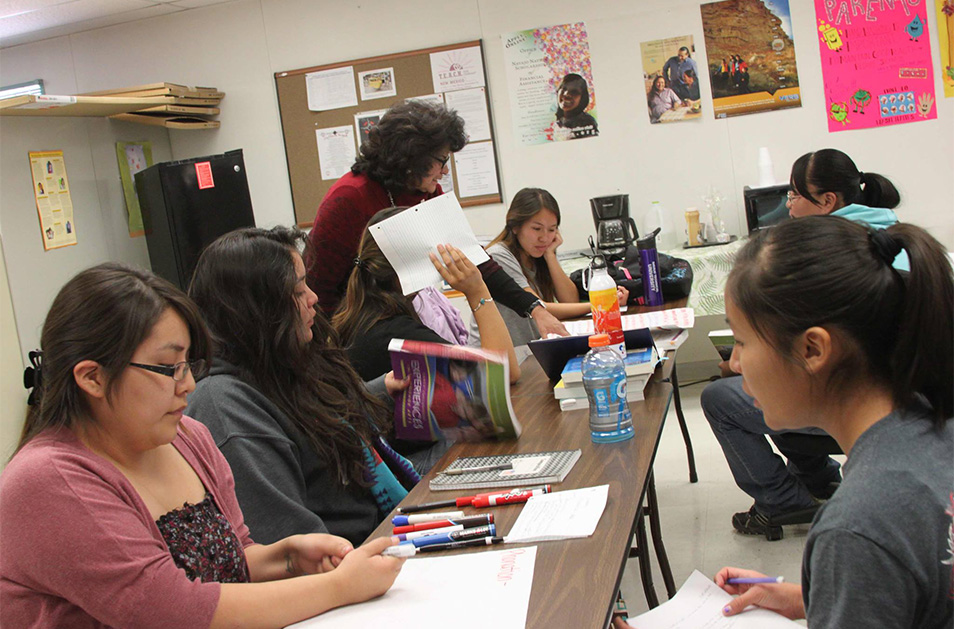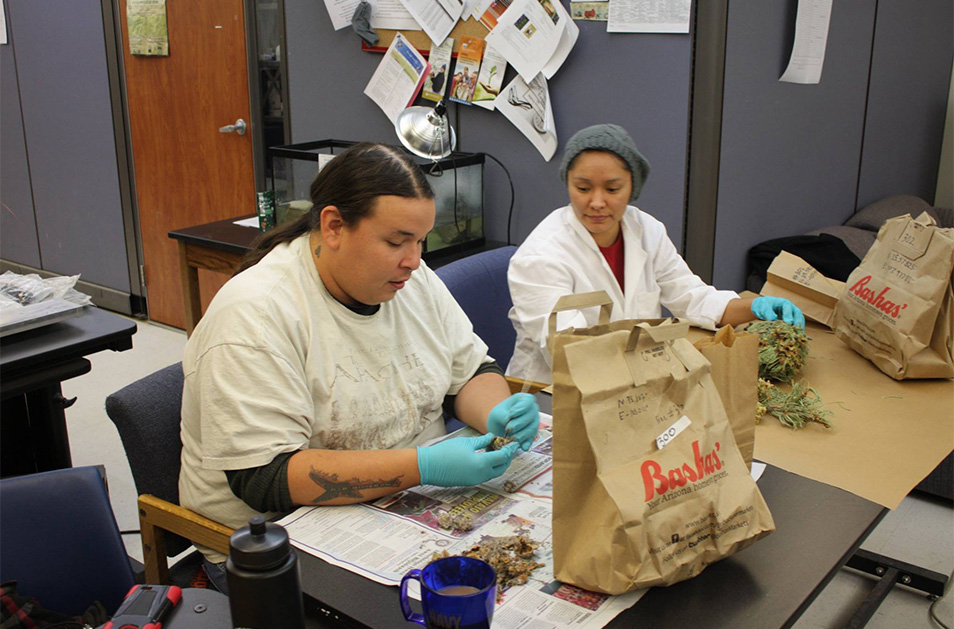Bachelor of Science
B.S. programs normally require a student to take the majority of their courses (usually 1/2 or 3/4) in the sciences, namely life sciences, physical sciences, engineering, or the mathematical sciences. Graduate and professional schools typically require a four-year B.S. or B.A. for admission. Students pursuing a B.S. are not required to have an Associate's Degree.
Any student seeking a Baccalaureate degree must complete a minimum of 36 credit hours of general education and 43 credit hours of core courses. Students in the baccalaureate degree programs are required to complete a minimum of 30 credit hours in the upper division courses, i.e., 300 and 400 level courses before they can graduate.
Federal regulations require institutions participating in student financial assistance programs authorized under Title IV of the Higher Education Act of 1965 to report certain information about students who enrolled in Title IV eligible education programs.
Many career options are available with a degree in Animal Science. Through experiential learning, the Animal Science program will provide a high quality educational experience. For the most part, students will complete general education courses during their first two years at NTU to prepare for more specialized courses in their third and fourth years. Knowledge in these specialized subjects lays the framework for entry into a broad range of professions in Native American communities, as well as throughout the United States and also to pursue advanced professional degrees, such as a D.V.M. (Doctor of Veterinary Medicine), medical school, pharmacy school, physical therapy, dental school, etc.
A student needs to complete the core Animal Science and general education courses within the first two years of study with a grade point average of 2.00 or better before taking the upper level core courses (300 and 400-level courses). To complete the program, a credit load of 13-15 per semester along with summer sessions are mandatory.
Mission Statement
Specifically, the aspiration of our Department is to prepare students to make contributions to their local communities and beyond as educators, researchers, and professionals. In support of this mission, and recognizing the breadth and diversity in the life sciences, the Navajo Technical University Department of Biology offers its students a comprehensive education in the biological sciences by providing them the opportunity to pursue a B.S degree with emphasis in general biology. Our goal is to graduate students with a broad understanding of the processes, concepts, and organizations of life at the molecular/cellular, systemic/organismal, and the community/ecosystems levels. To strengthen this goal, students are required to reinforce the theoretical knowledge gained in various courses with laboratory and field experiences that will eventually prepare them to pursue a range of careers in the general education, biological sciences, allied health, and health sciences, including many other fields that engage directly with various aspects of human adaptation and welfare. Since today’s professional biologist need advanced degrees or specific training, our program prepares them to pursue higher degrees in biology and health-related professional schools.
"Our Children will learn more because you learned more”
Navajo Technical University is dedicated to prepare Early Childhood Professionals in a culturally and linguistically diverse environment at a baccalaureate level. Students work intensely and progressively to prepare for their State Early Childhood Teacher Licensure from Birth to 8 years old.
This program provides a unique opportunity to assist present or future teachers of young children to use child development knowledge within the childcare, preschool and primary schools. This includes practical field experience, which will enhance their professional practice and gain competence in working with Infants through 8 years old and their families.
A student needs to complete general courses and general education electives within the first two years of study with a grade point average of 2.0 or better before taking the upper level core courses (300 and 400-level courses). However, to complete the program within four years, a credit load of 15 to 18 is recommended.
The electrical engineering program is designed to prepare students to design and improve electrical, electronic and computer systems. The program combines practical exposure to the most modern technologies available with a theoretical foundation that empowers students to master future changes and innovations.
A Bachelor’s degree in Environmental Science requires 122 credit hours and the Environmental Science degree is designed for a four-year program of study. Students in the baccalaureate degree programs are required to complete a minimum of 30 credit hours in the upper division courses, i.e., 300 and 400 level courses before they can graduate.
- General Science Requirements - 32 Credits
- General Education Requirements - 34 Credits
- Core Environmental Courses - 56 Credits
A student needs to complete general courses and general education electives within the first two years of study with a grade point average of 2.0 or better before taking the upper level core courses (300 and 400-level courses).
Industrial Engineering Mission Statement
The mission of the Industrial Engineering program at Navajo Technical University is to provide the best possible education, research, services, and resources to prepare students for careers in industry, research or academia and to achieve success in life.
Industrial Engineering is a branch of engineering that deals with design and improvement of integrated systems, including human resources, materials, equipment, and energy; using mathematics, physical sciences, and social sciences to maximize production of goods and services. In order to maximize efficiency, industrial engineers study product requirements carefully and then design manufacturing information systems to meet those requirements using physical and mathematical models. In addition, they develop management control systems to help in financial planning and cost analysis, and they design production planning and control systems to coordinate activities and ensure product quality. Furthermore, they design and improve systems for the physical distribution of goods and services and determine the most efficient plant locations as part of facilities planing operations. In a nutshell, industrial engineers determine the most effective ways to use the basic factors or production; namely people, machines, materials, information, and energy to make products and provide services.







